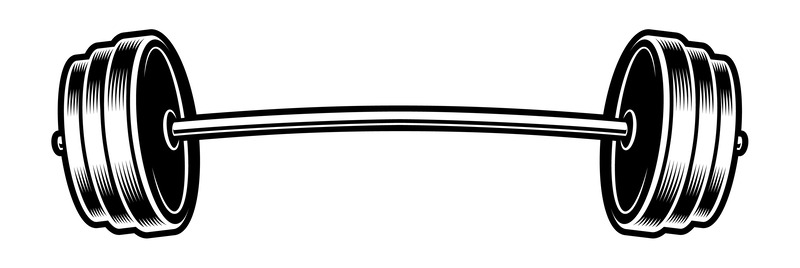Contents
Common Non-Intentional Spending Have you ever felt that your money disappears?
Do you ever get to the end of the month and wonder where your money went? It’s like your hard-earned income just disappeared! I know I have.
Chances are you have some money leaks, some cash-sucking drag-your-budget-down varmints. These varmints are often referred to as Money Pits, places where your money disappears and you don’t even realize it!
After years of common non-intentional spending, I found all my money leaks and was able to stop them. I learned the hard way, but you don’t have to.

The 13 Money Pits
In this article, I’m going to dive deep into 13 common money pits for you to stop your money leaks today. Let’s take a look:
1. Entertainment Subscriptions
One subscription by itself is usually not expensive. It may be $9.99/month,
$12.99/month, or even $19.99/month. None of the subscriptions alone will break the
bank. However, most people have several entertainment subscriptions and the cumulative effect can be detrimental to your budget.
More than likely, the subscriptions automatically renew, which is convenient and smart, but you need to review your subscriptions at least twice a year. They may be silently sucking money from you. When you do a semi-annual or even quarterly review, you can evaluate
- Are still using the subscription?
- Will continue to use the subscription?
- Should cancel the subscription?
The key is, to be honest with yourself. If you haven’t used the service for six months, chances are you won’t use it in the upcoming six months. Cancel it!
2. Irregular Payments
Irregular payments are those expenses that occur occasionally. These payments can totally catch you off guard and create havoc on your budget if you don’t plan for them.
Irregular payments can include items like propane, insurance, and auto maintenance. The key to not allowing these to silently suck money from your budget is planning. Plan for these expenses in your budget.
For example, if you spend $1000 filling your propane tank in the summer when there is a discount and another $500 topping it off in the winter, that is $1500 spent on propane over the course of a year. Divide $1500 by 12 months and presto you have $125/month for propane costs.
Your monthly budget should list $125/month allocated for propane expenses. This money should be moved into a savings account (preferably a high-yield savings account (HYSA)) each month and accessed when it is time to pay for propane. Save the surprises for a party, not your budget!

3. Old Cars
Having no car payment and a lower insurance payment because you drive an older model car is a great feeling. However, pay attention to your car’s warranty and have regular maintenance performed on your car.
Properly maintaining your car is key to getting the most life out of it. By all means, you need to plan for maintenance costs in your monthly budget. It is easy to get caught off guard when it comes to our cars.
There will come a time when you will need to evaluate the cost of maintaining your car vs. the cost of a new or newer vehicle. Cars have moving parts and moving parts over time, fail. However, planning for these failures and the eventual replacement of a vehicle is key to keeping a healthy budget.
4.Gym Memberships
Gym memberships, like entertainment subscriptions, can be an easily forgotten expense. We enroll with the best of intentions, but over time often our motivation and commitment wane. I get it!
The gym is not for everyone and that is ok, but what is not okay is paying for something you are not using. Be honest with yourself, if you are not utilizing your gym membership, then cancel it and look for a way to stay active that better aligns with your lifestyle. Maybe walking in the park, joining a dance class, or practicing a martial art.

5. Pets
Oh, this is a tough one for me. I love my dogs…. cats…. horses… cows…and Kevin the llama, but I digress.! Let’s talk household pets.
On average, owning a pet costs $1000 annually which equates to $83 per month. Remember that is an average, meaning that the cost can go higher.
A pet is a commitment. It is a financial commitment, but also a commitment to caring for it properly and providing a loving home. Not everyone can afford a pet. Not everyone should own a pet.
If you love animals but know now is not the right time to own one, I encourage you to volunteer at your local animal shelter. Volunteering will allow you to get the “animal fix” you need, help the shelter, and provide love to the animals.
6. Higher Education Expenses
I 100% support higher education, I have a college degree myself, but consider the return on your expenses before you jump in. The cost of college is becoming more and more expensive. It is important to have a college education to earn a good income and advance in many fields. However, there are other approaches to higher education.
- Trade Schools. Trade schools or technical schools offer focused programs in specific fields cutting down on the time and money spent on higher education. Trade schools are a great path for many people.
- Attend college part-time. Attending college part-time allows students the ability to work more and have a pay-as-you-go philosophy. Yes, the overall time it takes to complete the degree will be longer, but the overall student debt will be lower.
- Take a year or two off. There is nothing wrong with taking a year or even two to just work and save up for college. This option is great if you are not sure what field you want to enter. Use this time to explore your interests and research different occupations.
Everyone’s path is unique. There is no one right answer.
Reading the following statements helps put the challenges of higher education into perspective. The average cost for tuition in 2019 was more than three times what it was in 2001. The average wage in the U.S. has only increased by about 20 percent since 2001. Making the rising cost of higher education disproportional to the average wage.
Please, take your time and decide what is the right path for you when it comes to higher education.

7. Tiny Expenses
Tiny expenses are all the little purchases we make that are seemingly inconsequential, but over the course of a month can really add up and quietly drain your budget. Purchases may include snacks, sodas, fancy drinks, and candy.
Let me be clear, there is nothing wrong with any of these purchases. The challenge occurs when these purchases become mindless purchases and/or habit buys. Are you buying a snack because you are truly hungry and need the snack to help you focus for the remainder of the work day, or because you buy one every day at this time whether or not you are hungry?
It is a matter of making a conscious purchase. Is that soda you just grabbed for a little pick-me-up or a comfort drink? Be aware of WHAT you are purchasing and WHY you are purchasing it. That small change can help you rein in the tiny expenses if they have gotten out of control.
8. Insurance Changes
Insurance companies have to make adjustments as their costs shift. It may be just a few pennies a month or several dollars a few times a year. Be mindful of the adjustments and increases in your insurance costs.
I recommend an annual review of all your insurance. Are you using all the benefits? Have you had a major life event – marriage, divorce, or change of jobs? Did you pay your car loan off?
If you are not satisfied with your current insurance provider, shop around. When it comes to auto and renter’s or homeowner’s insurance using the same provider will save you money. Ask your provider how you can lower your insurance payment. They will provide you with options and you can decide if those options are right for you.

9. Alcohol
Buying a round or even two when you are out with friends is not a bad practice, heck I am sure your friends appreciate it! The key is to plan for it (are you starting to see a theme here?).
Remember your budget does not like surprises. Include this discretionary expense in your budget. Cover all your basic expenses first, pay yourself, and then decide how to spend your discretionary money.
One word of caution, I recommend taking your budgeted amount in cash – once it is gone you are done for the evening. This is a simple step to help keep you from overspending, something that is easy to do when alcohol is involved.
10. Eating Out
Eating out is my arch nemesis. It can mess up my budget if I become complacent.
The key, again, is planning and being aware of your spending. Are you grabbing food on the go because you are stressed and in a hurry or are you enjoying a nice dinner with friends or family?
If you know you have a busy week ahead of you I recommend meal planning and meal prep ahead of time. This way when the work day runs late and you are tempted to grab takeout, you will have a delicious meal waiting for you at home.
Having dinner out with friends provides the wonderful community and togetherness that we all desire. It may help us unwind after a stressful week or we may celebrate an accomplishment at our favorite restaurant.
Again, it comes down to accounting for dining out in your budget. Knowing you are not blowing your budget while enjoying a nice meal provides you with security and peace of mind.

11. Expired Foods
Let’s call it like it is … grocery shopping sucks! You stock up on the essentials only to have food spoil and are forced to toss it out. Ugh, it seems so wasteful – wasting food, wasting money, and wasting your time.
Something I have found helpful is meal planning before I head to the grocery store. Plan your meals for the week, then make your list for the grocery store. Buying what you know you need for the week will cut down on waste and also save you time at the grocery store and when preparing meals.
Equally important is learning how to store foods properly. When foods are stored properly it increases their shelf life and provides more options in meal planning. Cutting down on expired food waste will give your budget a boost and make grocery shopping a little more pleasant.
12. Unused Subscriptions
You sign up to try “something”. It goes great for the first month or two, but then your interest fades and you are on to the next “something”. But wait, was that subscription on auto-renewal? Out of sight and out of mind is what the company is hoping for. They really don’t care if you are using their services every month as long as your payment keeps coming.
Review your subscriptions twice a year. Cancel the subscriptions you no longer use. Also, be aware of the introductory rate vs. the standard rate. Companies like to lure you in with great introductory rates that may or may not change into not-so-great standard rates. Doing a semi-annual review will help you elevate the rates as well as the service and cancel those services that no longer benefit you.

13. Laziness
Avoiding a task or putting things off is expensive. Don’t wait until “you make good money” to save or invest. Don’t wait until you get a raise to address your credit card debt. Don’t wait until you “feel like it” to evaluate your spending habits or budget. Schedule an appointment with yourself and review your financial situation and your financial goals. The first step is always the hardest, but more than likely, your situation is not as bad as you have made it out to be in your mind. Evaluate, educate, and execute! Remember, I am here for you.
Conclusion
It took me a while to tackle each one of them, but after every time I intentionally reviewed one of the money pits and took action, I felt SO much better. Once I tackle them all, I’m telling you, I think I was able to sleep better KNOWING exactly where the money I’m spending is going and WHY I’m spending it.








